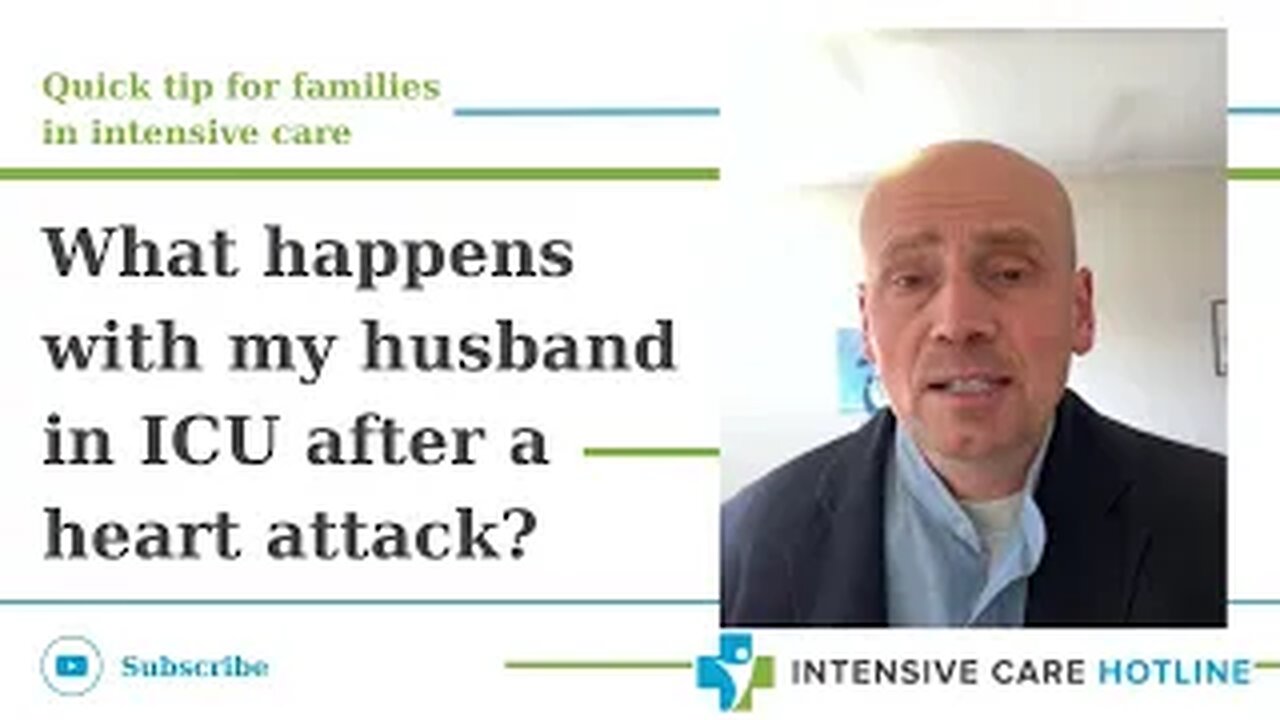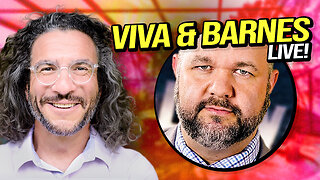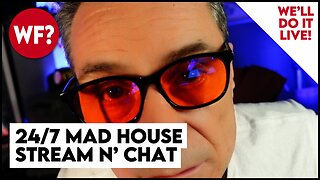Premium Only Content

Quick tip for families in ICU: What happens with my husband in ICU after a heart attack?
Quick tip for families in ICU: What happens with my husband in ICU after a heart attack?
Book your free 15 minute phone consultation here
http://intensivecarehotline.com/scheduling-appointment/
Call directly 24/7
+1 415-915-0090 USA/Canada
+44 118 324 3018 UK
+6141 094 2230 Australia
Email support@intensivecarehotline.com
Get 1:1 consulting and advocacy
1:1 phone counselling
http://intensivecarehotline.com/one-on-one-counselling/
Become a member for families of critically ill Patients in Intensive Care
https://intensivecarehotline.com/intensivecaresupport-org-membership/
Immediate action steps http://intensivecarehotline.com/take-control-take-charge/immediate-action-steps/
https://intensivecareathome.com
And if you need a medical record review , click on the link and we can help you with reviewing your loved one’s medical records while they’re in ICU.
https://intensivecarehotline.thrivecart.com/review-of-medical-records/
Hi, it’s Patrik Hutzel from intensivecarehotline.com with another quick tip for families in intensive care.
So, today’s tip is about, my 52-year-old husband is in ICU with a massive heart attack. What are his chances of survival? The ICU team is very negative saying he may not survive the next 72 hours.
So, let’s break this down so you understand what options are and how a positive trajectory and recovery can look like. Because I’ve seen it over and over again after having worked in intensive care for over 20 years in three different countries. Out of those over 20 years, I have also worked for over 5 years as a nurse unit manager in intensive care. And I’ve been professionally consulting and advocating for families in intensive care for over 9 years now. And I’m talking to families in intensive care and to intensive care units all day, every day.
So, let’s break this down so that you can understand what options you may have if your loved one is in a similar situation.
So, if someone is going into ICU with a massive heart attack, the first step that they often go to is the catheter lab where an angiogram is done or potentially an angioplasty. What happens during a heart attack, the coronary arteries get blocked, or some of them get blocked off. And then after a heart attack, the best course of action often is to go to the catheter lab, do an angiogram, and see what vessels are blocked. Either stent them so that they get unblocked, or potentially do open-heart surgery to circumvent some of those blocked vessels by putting in new veins, to reperfuse the blocked sections of the heart, so that the heart muscles can regain functionality. But that all needs to happen very quickly, needs to happen within hours. Otherwise, the heart muscles can get damaged irreversibly and that might be what your husband is facing in this situation.
So, what else is happening in situations like that? Other things that happen in a situation like that is an ultrasound of the heart is being done, and it will be determined what the ejection fraction is of a heart. Ejection fraction means basically what is the contractility of the heart? How well can it pump?
Often what also happens during a heart attack is that inotropes will be started, inotropes or vasopressors. The most common inotropes or vasopressors that are started after a heart attack are dobutamine, dopamine, and milrinone but also medications such as noradrenaline also known as norepinephrine, adrenaline also known as epinephrine, and also sometimes levosimendan. Especially dobutamine, milrinone, dopamine, and levosimendan purely work on the contractility of the heart to increase the pump function. Whereas medications such as noradrenaline or norepinephrine, and adrenaline or epinephrine are vasoconstrictors. Basically constricting the vessels of the body, so that blood will be pumped towards the heart. And the heart has more volume to work with.
Next, other things that often happen after a heart attack or after open-heart surgery, following on from a heart attack is that patients end up with a PA catheter or pulmonary artery catheter, or a Swan-Ganz catheter to measure cardiac output or cardiac index, to measure SVR (systemic vascular resistance) and see how well the heart is working. How do the medications and the heart function work together? Is it getting the desired outcome with a PA catheter or a Swan-Ganz catheter? You can get a series of numbers that will tell you how well is the treatment working.
Now, I’m not going to break this down into too much detail today. You need to understand a lot of the anatomy and physiology to understand what numbers you can get from a PA catheter or from a Swan-Ganz catheter.
Continuation...
https://intensivecarehotline.com/blog/quick-tip-for-families-in-icu-what-happens-with-my-husband-in-icu-after-a-heart-attack/
-
 9:02
9:02
Intensive Care Hotline
10 hours agoTestimonial from Another Very Happy intensivecarehotline.com Client We have Worked with Since 2018!
131 -

vivafrei
11 hours agoEp. 253: Zelensky Dress-Down and Geopolitical Fallout! D.C. Court Rules AGAINST Trump Firing & MORE!
64.8K107 -
 2:13:14
2:13:14
Nerdrotic
3 hours ago $5.21 earnedMegalithomania! with Hugh Newman and Andrew Collins | Forbidden Frontier #092
30.7K15 -
 38:41
38:41
Sarah Westall
5 hours agoHealth Freedom Under Attack, Dr Robert Young Found Guilty on Suspicious Victimless Crime, Matt Hazen
7.73K2 -
 LIVE
LIVE
Vigilant News Network
4 hours agoDataRepublican Exposes the Shadow Government’s Darkest Secrets - Exclusive Interview | Media Blackout
1,931 watching -
 LIVE
LIVE
Film Threat
23 hours agoLIVE OSCARS 2025 WATCH PARTY | 97th Academy Awards | Join the Chat!
460 watching -
 31:39
31:39
Peter Santenello
1 year agoStories From Vegas' Golden Era 🇺🇸
25.1K11 -
 LIVE
LIVE
The Why Files
8 hours agoLIVE: The Why Files 24/7 Stream n' Chat
1,267 watching -
 55:15
55:15
Russell Brand
1 day agoThe Truth About Big Pharma & COVID with Dr. Aseem Malhotra
138K7 -
 1:19:48
1:19:48
The Rubin Report
8 hours agoWhat the Trump Administration Must Do Instead of Revenge | Peter Thiel
96.4K159